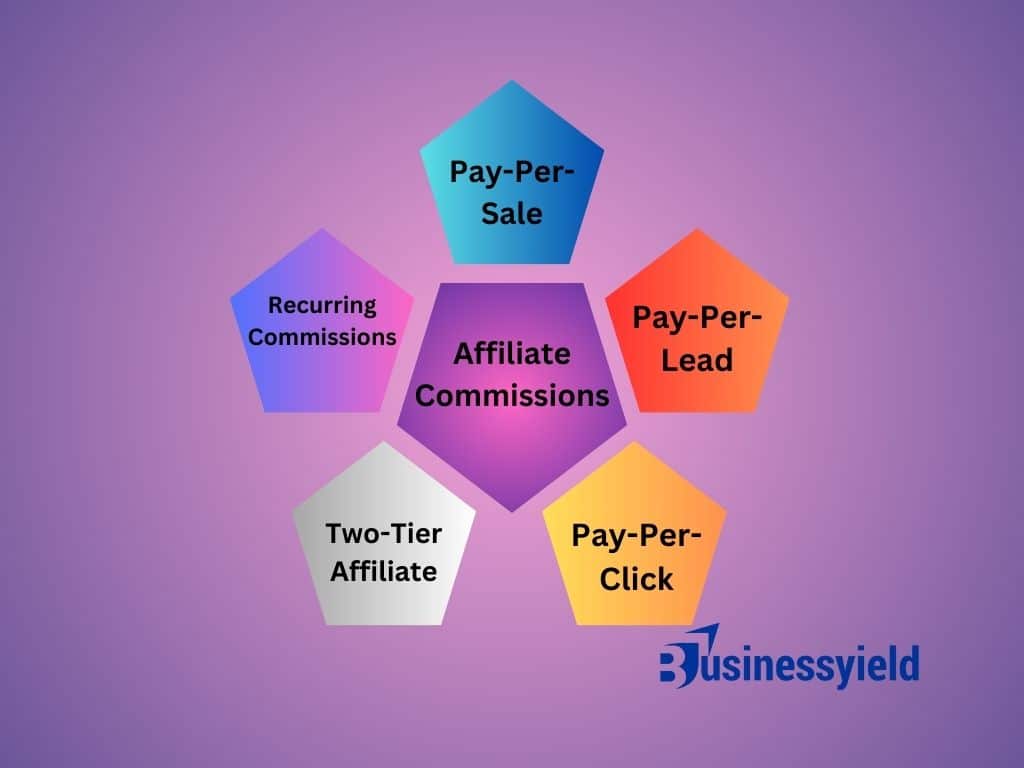A few years ago, I ventured into affiliate marketing with enthusiasm and a hunger for achievement. It didn’t take long before all that excitement watered down. Why? I didn’t know how to select an affiliate program. It just felt like I was attempting to put together a puzzle without having all the necessary pieces.
Choosing affiliate programs requires expertise, not luck. After years of practical experience, I have perfected the skill of strategic selection. It’s important to ensure that programs are tailored to your specific niche, have a deep understanding of your audience, and can navigate the complexities of commission structures.
Prepare yourself for an exclusive guide to becoming an expert in selecting affiliate programs. I will guide you through niche research, commission analysis, program reliability checks, and other important aspects. Let’s get started!
Key Takeaways
- Choosing the perfect affiliate program relies on understanding your motivations for becoming an affiliate and identifying your niche.
- Before you select an affiliate program, consider your niche relevance, commission structures, payment reliability, cookie duration, and available marketing tools. Research network reputation, seek reviews, and opt for those aligning with your brand values for a successful partnership.
What To Look Out For In An Affiliate Program
Choosing the perfect affiliate program relies on understanding your motivations for becoming an affiliate and pinpointing your specific area of expertise. With a bit of patience, you’ll eventually discover a lucrative niche. Once you’ve honed in on it, expanding your audience will become effortless.
It’s possible that there isn’t an ideal affiliate program for your specific niche. Many successful affiliate programs share common traits. They sell proven products, offer high commission rates (including recurring ones), have long cookie lifetimes, transparent terms and conditions, and welcome everyone to join their programs. Additionally, they efficiently track performance. These features have the potential to greatly enhance your chances of success as a beginner.
Read Also: 33+ Best Fashion Affiliate Programs In 2023
How To Select An Affiliate Program: Practical Steps
How do you select a profitable affiliate program? Here are the steps you can take to move forward.
#1. Niche Research
It’s only logical that you choose products that are related to your niche. If you own a fitness blog, for example, you can select an affiliate program that offers a wide range of gym equipment and fitness gear. In the same way, if your website provides information on artificial intelligence-based tools used in EdTech and training, you can greatly benefit by becoming an affiliate partner with an AI company within that specific niche. Additionally, you may consider showcasing other tools offered by the company, which are likely to be AI-based.
Carefully observe the range of products offered in your specific niche as well as related ones before you select an affiliate program. Begin by casting a broader net and gradually refine your approach as you approach the final stages of the affiliate program. It is important to consider various factors, such as the type of product, its price, usage, limitations, and more.
Some affiliates choose to promote high-priced products, while others focus on affordable products to attract a larger customer base and earn higher commissions. There are no set guidelines to adhere to. Find what suits you best.
#2. Understand The Commission Structures
While choosing an affiliate program tailored to your niche is important, you should also consider the commission structure. This determines the amount of money you make from each successful referral or sale. Understanding the various commission structures in affiliate marketing and how they work will help you make more informed decisions. Let’s go over them:

# Pay-Per-Sale (PPS) or Cost-Per-Sale (CPS)
With the pay-per-sale or cost-per-sale structure, you share a product link, and for every successful sale generated through your referral, you receive a percentage or a fixed amount. Let’s say you’re promoting a product worth $50, and you earn a 10% commission. This means that you’ll make $5 off every sale.
# Pay-Per-Lead (PPL) or Cost-Per-Lead (CPL)
Here, you earn for bringing in qualified leads, irrespective of immediate purchases. It’s like being paid for opening doors, not just making sales. Compensation flows based on the number of leads you generate—registrations, sign-ups, or email subscriptions. Think of it as a strategic move for businesses building email lists. And for you, it’s about diversifying income beyond the sales space.
# Pay-Per-Click (PPC) or Cost-Per-Click (CPC)
Here, you get paid for every click your affiliate links receive. There’s no need to wait for actual sales; it’s all about driving traffic to the merchant’s site. Perfect for those into context-based advertising or banner placements. But here’s the catch: you need a game plan. Attract the right kind of clickers who convert into actual sales or leads for the merchant.
Read Also: PAY PER CLICK ADVERTISING (PPC): Costs And Top 7 Agencies
# Two-Tier Affiliate Program
Here, you not only earn from your direct referrals but also from recruiting new affiliates. It’s like building an affiliate army. You earn not just on your sales and leads but also on the victories of your recruited affiliates. A network effect that’s a win-win for the program and affiliates, fostering a culture of active support and guidance.
# Recurring Commissions
This is the gift that keeps on giving. You earn commissions as long as the customers you refer stay active and keep making payments for subscription-based products or services. Think membership websites or software as a service (SaaS). One referral, and you keep swimming in commissions month after month or year after year. It’s like planting a money tree that never stops bearing fruit.
#3. Conduct a Thorough Investigation on Dependability
Examine the dependability of a program. It’s important to do your research, seek advice from other affiliates, and choose a program that has a proven track record. Examine the program’s history, consistency in payments, and level of support. This is the foundation of your affiliate journey.
You should carefully consider the cookie duration when choosing an affiliate program. This duration determines the length of time that your connection with referred users remains active after they click on your affiliate link. As an example, imagine a brand that sets the cookie duration to 10 days. If the visitor purchases before the cookie expires, you may be eligible for a commission or risk losing the profit. Affiliates benefit greatly from longer cookie life.
#5. Look out for potential traffic leaks
Ensure you thoroughly review the landing page of the company or merchant to identify any potential leaks. Links on the affiliate program website allow prospective customers to click and be redirected to other sites, known as traffic leaks. While these websites have the potential to benefit the company or merchant if the visitor they refer makes a purchase, they do not provide any rewards to the affiliate who has completed the action.
The failure of affiliate programs can often be attributed to traffic leaks. They usually include various types of advertisements, like third-party banner ads, Google AdSense ads, text links, popups, and more.
#6. Always review the terms and conditions
Make sure to thoroughly review the terms and conditions of your collaboration, just like you would with any agreement. The requirements and expectations should be communicated clearly to ensure alignment between the company and yourself. Occasionally, you may encounter a situation where a specific condition becomes a potential deal-breaker. As an illustration, some affiliate programs have limitations on generating sales through certain traffic channels. Some other programs state that affiliates will not receive their commission if the transaction is not completed or canceled, if the product is returned, or if a subscription is canceled within a specific timeframe.
#7. See if the program provides a sales tracking system
Tracking systems are essential for businesses to effectively manage affiliate programs. These systems allow businesses to track the performance of their affiliate partners, assign commissions, issue automated cash payouts, and detect any fraudulent activities. In addition, they allow for the implementation of a commission structure that offers bonuses to top-performing affiliates. There are various systems available, such as Everflow.io, LinkTrust, and numerous others.
A great affiliate program offers substantial benefits. Affiliates can closely track the performance of their traffic channels, analyze the total number of paying customers over specific periods, and keep tabs on the number of clicks their affiliate links receive. This knowledge can assist individuals in redirecting their efforts towards achieving favorable outcomes.
#8. Check out the marketing tools
In addition to commission payouts, brands provide affiliates with more than just financial incentives. Shopify and other businesses often provide complimentary marketing kits. This tool assists you in crafting compelling ad campaigns and driving more traffic to your website, ultimately attracting a greater number of potential leads.
There is no requirement for you to become an affiliate of a brand that provides extra tools. Invest in the tools of your choice to effectively track, streamline, and promote your affiliate services.
#9. Check for upsells.
Nowadays, companies offer upsells to boost your commission. Customers are provided additional options when they order a product, enhancing their overall experience. This offer is exclusively available for a limited time during the purchase period. When customers accept the offer, you’ll receive a commission for both the product and any additional items sold. It effortlessly boosts your income.
Common Mistakes You Should Avoid When Choosing An Affiliate Program
#1. Neglecting niche relevance
There are some mistakes you have to avoid when choosing an affiliate program, and neglecting niche relevance is one of them.
Choosing an affiliate program without considering its niche relevance is just like going on a journey without direction; you’ll just find yourself running around in circles. When I started out on affiliate marketing, I joined a program that appeared to be profitable but had no relevance to my specific niche. What was the outcome? Poorly executed marketing campaigns, unengaged viewers, and disappointing results.
Having a niche is very important in affiliate marketing. Neglecting this puts your credibility and the trust of your audience at risk. Imagine suggesting fitness equipment on a cooking blog; you won’t get much results. Crafting a meaningful bond with your audience goes beyond mere financial gain. It’s about establishing an authentic connection.
Select programs that are deeply integrated into the fabric of your niche. This is more than just a strategic move; it represents a genuine dedication to providing value. When it comes to navigating the affiliate world, it’s crucial to remember the significance of remaining focused on your niche. This can determine whether you find success or get lost in the vast marketing landscape.
Read Also: 10 Profitable Blog Niches in 2024
#2. Pursuing high commissions without consideration
I can tell you from experience, the allure of high commissions can be deceiving. I found myself promoting products that didn’t resonate with my audience, sacrificing authenticity for a quick payout. It’s like a short-term gain leading to a long-term loss. I learned the hard way that success in affiliate marketing isn’t just about the commission percentage; it’s about aligning with products that genuinely serve your audience.
Always choose quality over quantity. Choosing programs solely for their high commissions may compromise your brand integrity and erode trust. Thoughtful consideration, focusing on the relevance and value a product brings, ultimately yields more sustainable success in the affiliate market. So, when tempted by the allure of high commissions, remember: it’s not just about the numbers, it’s about building enduring connections with your audience.
Here’s a review on other mistakes you should avoid when choosing an affiliate program:
How Much Does It Cost To Set Up An Affiliate Program?
The cost of setting up an affiliate program varies but typically ranges from $500 to $2,000 for software. Additional expenses may include marketing and affiliate payouts. Some platforms offer free entry-level options, while others may incur higher costs for advanced features.
How Do I Choose An Affiliate Network?
To choose an affiliate network, consider your niche relevance, commission structures, payment reliability, cookie duration, and available marketing tools. Research network reputation, seek reviews, and opt for those aligning with your brand values for a successful partnership.
What Is The Easiest Way To Start Affiliate Marketing?
The easiest way to start affiliate marketing is by selecting a niche you’re passionate about, joining reputable affiliate programs, creating quality content, and promoting products through your blog or social media. Utilize free platforms and gradually scale your efforts as you gain experience.
Which Type Of Affiliate Marketing Is The Best?
There’s no better type of affiliate marketing. Choose based on your audience and goals. Pay-Per-Sale for direct sales, Pay-Per-Lead for leads, Pay-Per-Click for traffic. Consider Two-Tier or Recurring for long-term gains. Experiment to find what aligns with your strategy.
In Conclusion,
Choosing affiliate programs can be a breeze when you have a well-organized research strategy in place. It is important to carefully select the niche, products, and brands when considering becoming an affiliate. Maximize the potential of your website, posts, and ad campaigns to boost organic traffic. It is important to note that seeing results from any affiliate program requires some time and patience.
Being persistent and consistent will greatly help you establish yourself as a valuable affiliate for a business. Keep connecting with others and expanding your presence in the market. You can become an affiliate of multiple businesses. Discover the vast array of possibilities that the internet has to offer and seize them to your advantage.
- AFFILIATE MARKETING: Definition, How It Works, and Benefits
- 21+ Best Affiliate Marketing Companies in 2023, Updated
- Best 27 Affiliate Marketing Courses To Try In 2023
- How to Do Affiliate Marketing: Best Easy Guide 2023






